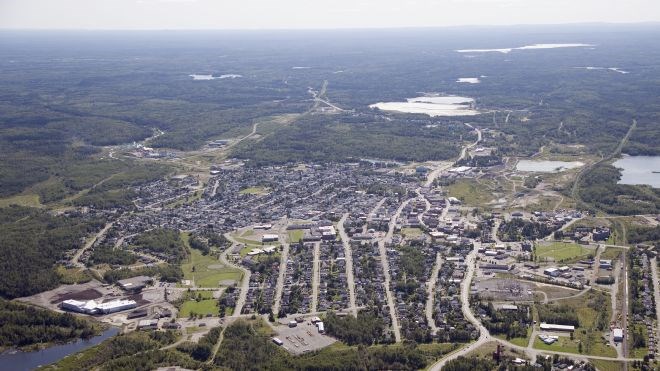Since the early 1920s, gold has been at the heart of Kirkland Lake’s economy.
The northeastern Ontario is home to one of the mining industry’s most successful mid-tier companies, Kirkland Lake Gold.
Its acquisition of St. Andrew Goldfields last year and pending merger with Newmarket Gold should make for a stronger, more stable, producer mining at multiple operations in the prolific Abitibi Greenstone belt.
Director of Economic Development and Tourism Wilfred Hass believes it as positive development that bodes well for northeastern Ontario.
The combined company enjoys stronger technical capabilities, better economies of scale and larger reserves. Mining supply and service companies working in the region will also benefit from changes at KLG as they will potentially enjoy simplified access to a larger company with increased buying “You walk through the door and now you’re servicing four distinct operations,” said Hass.
Kirkland Lake Gold is also more active within the community. Recent philanthropic endeavours include donations to the Kirkland and District Hospital. The mine’s financial support for repairing the access road to the hospital was particularly well received.
“The result is that we are seeing a stronger level of community appreciation of the mine,” said Hass. “That translates into a new sense of pride and support for the operation.”
The town and regional service centre of close to 9,000 services a wider catchment of 13,000 within a 45-minute drive. On a daily basis, roughly 11,000 people are doing business or receiving services in Kirkland Lake.
A recent review by KPMG of municipal operations showed that the town had the second lowest reported average taxes per household of its comparator communities. Despite this, the town continues to make important investments in community infrastructure. This includes road upgrades, and a new waste water treatment plant. Quality of life projects are also important.
Construction started in October on an $11-million aquatic centre and nearing completion is a $2.6-million renovation of Civic Stadium into a multi-season, multi-use venue to host festivals, concerts and sports tourism events.
The new and improved outdoor venue features a band shell, a pavilion that can be converted into a covered ice surface, ball field, and a multi-use court for tennis and basketball. “Civic ‘s central location will make the downtown more vibrant and help local businesses,” said Hass.
One of the Kirkland Lake’s biggest success stories is the conversion of its hockey museum into a dedicated conference and event facility.
The increasingly popular venue hosts wedding receptions along with workshops, training seminars and various functions for government ministries and the corporate crowd.
Hass said large out-of-town wedding parties and clients have booked the large banquet room and exhibit hall, combining that with overnight hotel stays.
Since the venue’s recent renovation, rebranding and outfitting with new audio-visual technology, revenue from bookings and concessions went from $27,000 in 2011 to a projected $64,000 in 2016, and from a then-record 112 events last year to a projected 150 by the end of this year. Future improvements include licensing the facility, selling event liability insurance at the gate and increased regional marketing.
“The new facility enjoys much broader community support. In part, it is because it is very functional and visually appealing; a place you can be proud of. But it is also contributing much more to the local economy than before. The hotels are benefitting and new businesses offering related services have started up,” said Hass.
Hass said he’s encouraged by the brand of “risk taking” entrepreneurs that Kirkland Lake has cultivated, mentioning Wood Ash Inc., a local recycling company of wood ash taken from the local co-generation plant that’s being experimented with for environmental remediation, including dealing with mine tailings.
“(Wood Ash owner) Brian Coghlan has a history of seeing local opportunities in the local and regional economy, and has capitalized on them. Now, he has a very unique product with a potential process that could be used for industrial purposes and could be a great benefit to the North’s economy."




